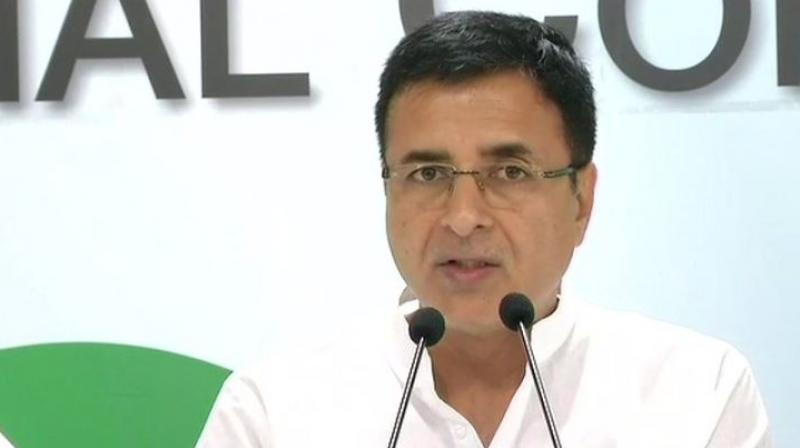‘Floor test with no whip?’

New Delhi: With the Karnataka Assembly all set for a floor test, the Congress Thursday asked how a confidence motion can be taken up when the power of a political party to issue a whip has been nullified by a court order.
Congress chief spokesperson Randeep Surjewala said the Supreme Court order raised more questions than it answered and many concerns have arisen over implementing its decision. The SC had said that 15 rebel MLAs of the Congress-JD(S) government “ought not” to be compelled to participate in the proceedings of the ongoing session of the state Assembly. It said an option should be given to them as to whether or not they wanted to take part in the proceedings. “Can there be a confidence motion in compliance with the established Parliamentary Procedure and Constitutional Norms in absence of Schedule X of the Constitution,” Surjewala asked. “As a result, the Congress’ authority to issue and enforce a whip has been effectively nullified. This concern manifested itself in practice today when rebel MLAs took advantage of the court's order to avoid participating in the floor test,” he said. Surjewala alleged that this is not the first time that the BJP has used money and muscle power to subvert public mandate and Karnataka is the latest state that has fallen victim to the party's philosophy of “usurping” power.
Surjewala said the doctrine of separation of powers separates and prohibits the judiciary, executive and the legislature from interfering with the workings of one another. “The fact that separation of powers is part of the basic structure cannot be ignored. This is an essential check and balance in preventing the excesses of one arm of government over the other. Can the judiciary impose its own terms and conditions on how a floor test should be conducted and consequently govern proceedings of the legislature?" he said, while seeking to question the apex court’s judgment. He asked whether the SC considered the context and history of these deliberate and designed defections while passing its order.

